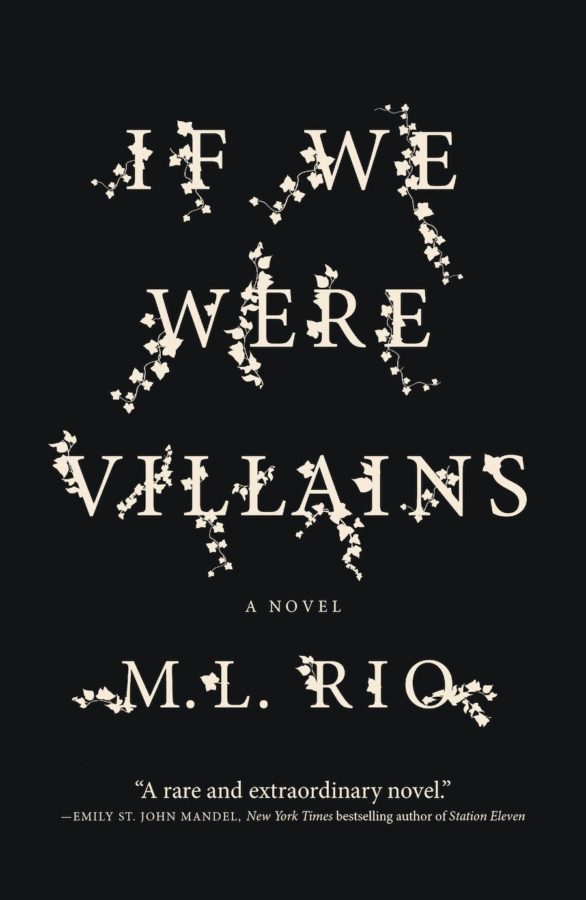Book Review: If We Were Villains by M. L. Rio (2017)
April 4, 2023
“Do you blame Shakespeare for any of it?”
The question is so unlikely, so nonsensical coming from such a sensible man,
that I can’t suppress a smile. “I blame him for all of it,” I say.
If We Were Villains by M. L. Rio is a dark, Shakespeare-laden thriller that utilizes the Bard’s work as a backdrop for intricate character development and complex thematic exploration. It is, at its core, a character-driven story that deftly explores the topic of life imitating art.
The premise is as follows: ten years ago, then-college student Oliver Marks was arrested and convicted for murder, in part thanks to the work of Detective Colburne. Now, a decade later, Marks’ sentence has finally come to a close, and he is released from prison. But Colburne, still plagued with questions, isn’t satisfied. After resigning from his job as detective, Colburne goes to Marks and asks to finally be told–off-record–the truth about what happened ten years ago.
From then, we’re taken through a whirlwind, Shakespeare-tainted story of love and betrayal, secrets and loss, and ambition and revenge through the eyes of a young, naïve Oliver Marks.
We’re introduced to our core cast of characters: Meredith, James, Richard, Alexander, Wren, Filippa, and Oliver. The seven students are a tight-knit group of “bardolators” navigating their fourth year at Dellecher Classical Conservatory, a Shakespeare-obsessed art school. At first, the group comes off charming and close, speaking to each other in a pretentious but enviable familect of Shakespeare quotes and references. They fit together perfectly, like siblings. Each has a role in which they’ve been cast: the hero, the tyrant, the villain, the seductress, the sidekick, and the extra. These roles pervade every aspect of their lives, moving beyond their Shakespearean productions and becoming their entire identities. As the story goes on, it becomes more and more clear how much these roles they’ve grown into over the past four years have changed them, making each one a larger-than-life caricature of the parts they’ve been assigned.
For the first “act” (because of course this book was split into acts), the plot meanders slowly, giving us time to get to know this dysfunctional little group. Then, in Act Two, we’re introduced to the first massive tragedy: a murder. From there, fractures that once may have been ignorable are suddenly glaring, as things come crashing down all at once. Aided by the fast-paced plot, the book explores the complexity of what happens when Shakespeare’s world of extremes is cast onto real people. Characters who, for years, have understood their emotions only through the words of the Bard find themselves living through something straight out of his stories. As they hurtle through their school-year productions of King Lear, Julius Caesar, and Macbeth, the characters explore their own themes of family, pride, and ambition as the murderous plot unfolds in front of them.
Towards the end, the story lives up to its label as thriller and delivers a series of massive twists. Unfortunately, when reading this story, I was able to predict one of the larger twists before it arrived, dimming the effect of that particular shock. However, I still believe that the twists were really well done, and will likely have a better effect on other readers.
At once a whodunit, a story of friendship, a tragedy, and a love letter to Shakespeare, If We Were Villains has something for everyone and has been a personal favorite out of the fiction novels I’ve read this month. (A must-read for fans of Dr. Pittman’s Literature class.)
Lastly, I think it’s important to note that this book does deal with some mature elements, such as drug/alcohol use, physical abuse, and eating disorders that are probably best suited for high school readers as opposed to middle and elementary schoolers.



